When Choosing or setting up a mountain bike, one of the most important decisions is choosing the right drivetrain components. Shimano is a leading brand for groupsets, and two of their most popular options for mountain bikes are Deore and Altus. But with different features and price points, how do you pick between them?
This comprehensive guide on Shimano Deore vs Altus compares both groupsets across key criteria like shifting performance, gear range, durability, weight, and value. Whether you’re building a new mountain bike from the frame up or looking to upgrade your current drivetrain,
Read on to learn which Shimano groupset is the best match for your riding style, terrain, and budget.
Cyclify India is reader-supported! We may receive an associate commission if you make a purchase through one of the Amazon Associate links on this page! Continue Reading…
Table of Contents
Deore vs Altus Quick Comparison Table:
| Feature | Shimano Deore | Shimano Altus |
|---|---|---|
| Shifting Quality | Very smooth, precise | Consistent but not as crisp |
| Gear Range | Wide 10/11/12 speeds, up to 51T | Limited 9 speeds, up to 36T |
| Intended Use | Technical MTB, racing | Casual, recreational |
| Durability | Withstands rugged riding | Reliable but not high-performance |
| Weight | Lightweight materials | Heavier steel alloys |
| Price | Mid-range value | Very budget friendly |
| Materials | High-end metals, alloys | Basic steel alloys |
| Construction | Advanced technologies | Cost-focused |
Overview of Shimano Deore
Shimano Deore is Shimano’s high-performance, mid-range mountain bike groupset. It is intended for aggressive off-road riding and tackling technical mountain terrain.
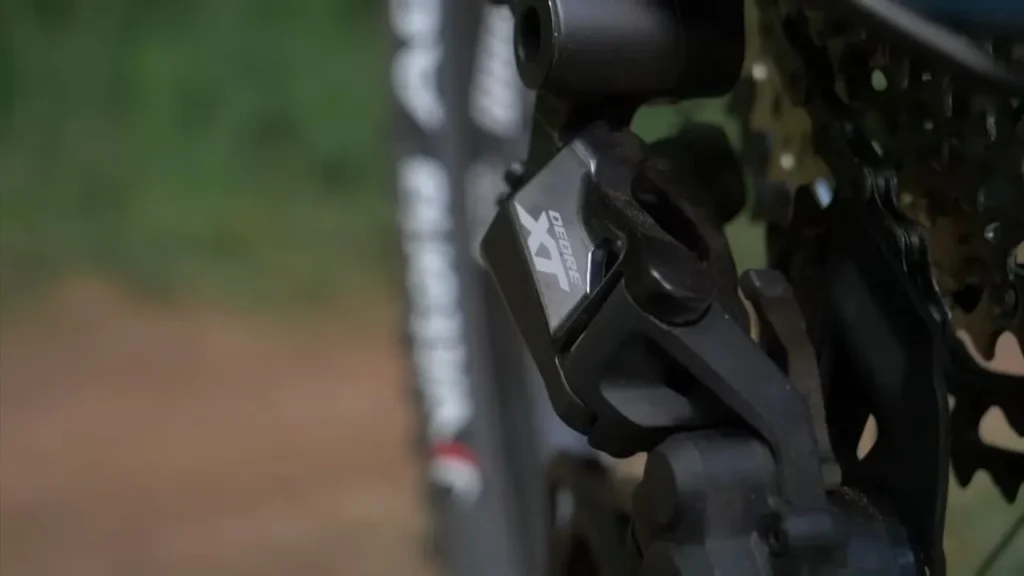
Speeds/Gear Range:
Deore offers a wide range of gearing options to suit different riding styles and conditions. It is available in 10-speed, 11-speed, and 12-speed configurations. The cassette options provide a broad gear range like 11-42T, 11-46T, or 11-51T to handle steep climbs and fast descents.
The multiple gearing configurations and wide-range cassettes give riders the versatility to find the right gears for varied trails.
ALSO READ: HOW DO BICYCLE GEAR WORK A COMPLETE GROUPSET ANATOMY EXPLAINED!
Shifting Performance:
The shifting performance of Shimano Deore is very smooth, crisp, and precise across all gears thanks to advanced technologies borrowed from Shimano’s top-tier groupsets.
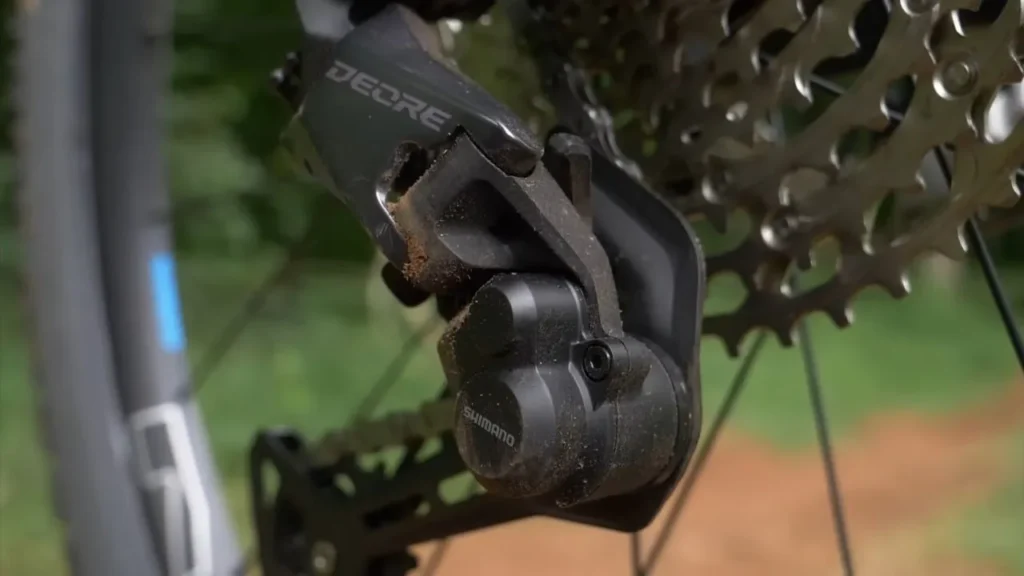
The rear derailleur design and Shadow Plus clutch system enable reliable shifting even under load or over rough terrain. The shifts are accurate and consistent for seamless gear changes when navigating technical mountain sections.
Durability:
Shimano Deore is built to withstand aggressive mountain biking and the rugged conditions found on challenging off-road trails. The components use high-quality materials and construction to deliver reliable performance and longevity.
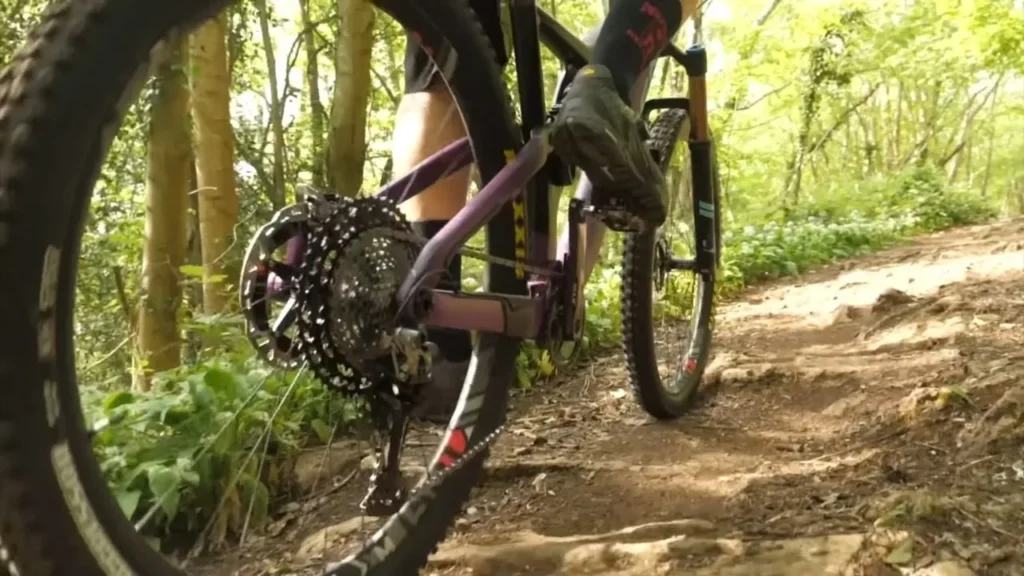
The derailleurs and shifters resist damage from impacts while the cassettes and chains hold up to heavy use without excessive wear. This level of durability suits the demands of all-mountain, enduro, and downhill riding.
Weight:
By utilizing lightweight materials in the cranks, derailleurs, shifters, and cassettes, Shimano Deore achieves relatively low weight while maintaining durability. This helps minimize the weight impact on mountain bikes where efficient pedaling and nimble handling are essential.
The balance of low weight and reliability makes Deore well-suited to cross-country and trail bike applications.
Price:
Shimano Deore is considered a mid-range mountain bike groupset in terms of price. It costs more than low-end recreational groupsets like Altus but carries a more budget-friendly price than premium groupsets like XTR.
Deore provides greater value by delivering pro-level performance and technology at an accessible price point.
Materials/Tech:
The Deore groupset utilizes high-end materials like lightweight forged aluminum and alloys combined with proven Shimano technologies. Features and innovations from Shimano’s professional-level groupsets trickle down to Deore.
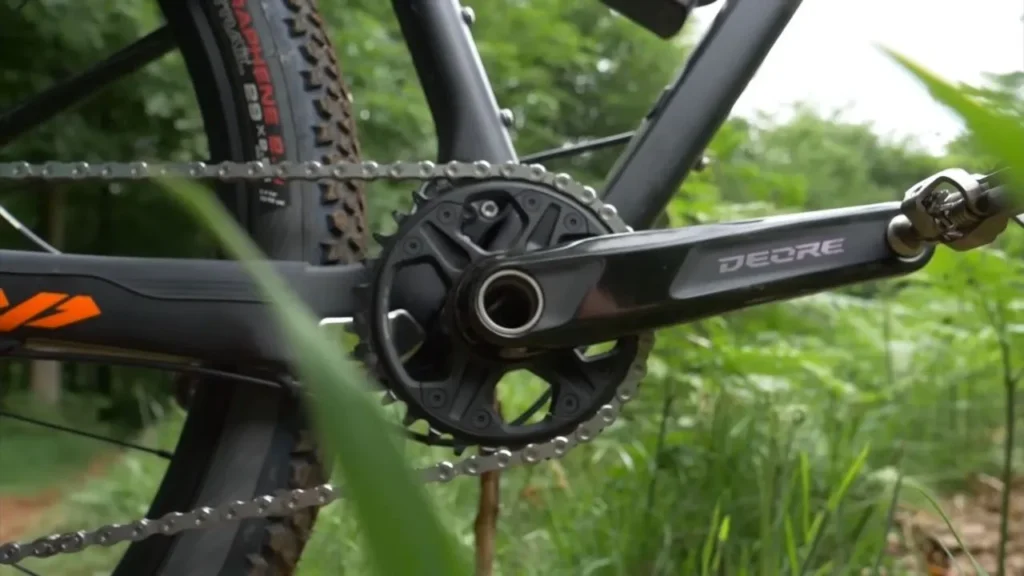
This includes wide-range gearing, Shadow Plus clutch derailleurs, Hyperglide shifting, and robust cranksets. The blend of quality materials and technical advancements is what enables Deore’s impressive performance.
Pros and cons of Shimano Deore
| Pros | Cons |
|---|---|
| Smooth, precise shifting performance | More expensive than entry-level groupsets |
| Wide range gearing options for varied terrain | Requires compatible MicroSpline freehub body |
| Durable construction for rugged mountain biking | Occasional finicky rear derailleur adjustment |
| Lightweight compared to other groupsets | The short lifespan of 12-speed chains |
| Reasonable mid-range pricing | Overkill for casual recreational riding |
| Advanced features and tech from top tiers |
Overview of Shimano Altus
Shimano Altus is an entry-level mountain bike groupset designed for recreational riding and beginners. It favors affordability and simplicity over maximized performance.
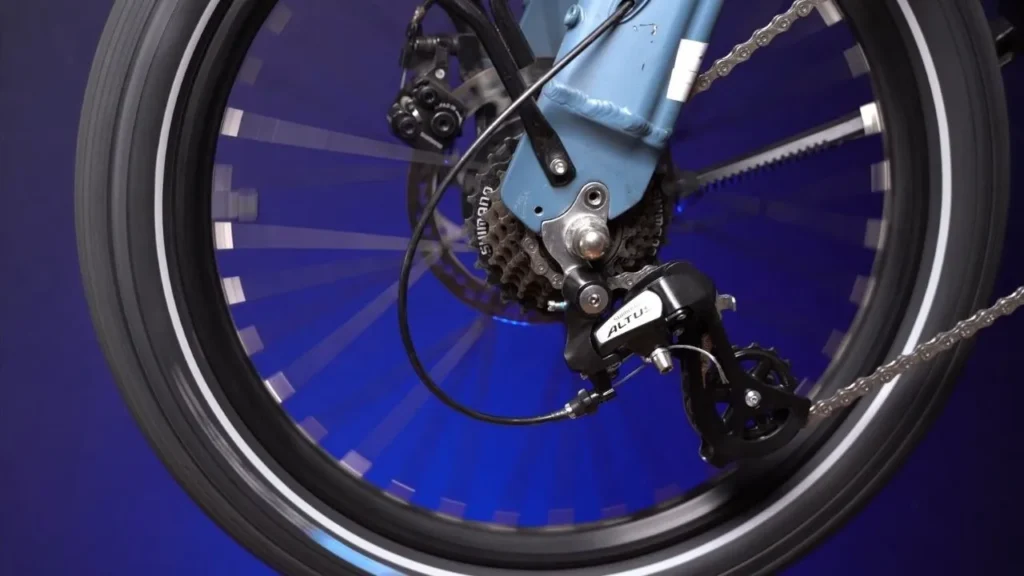
Speeds/Gear Range:
Altus uses a basic 9-speed drivetrain configuration. The cassettes come in more modest gear range options like 11-32T or 11-34T compared to the wider ranges of Deore.
While the gearing is suitable for casual off-road riding, it has limitations for steep climbs or fast descents. The narrower range caters to riders new to mountain biking.
Shifting Performance:
The shifting performance of the Shimano Altus is consistent and reliable, providing smooth gear transitions. While the shifts are not as crisp or refined as higher-end groupsets,
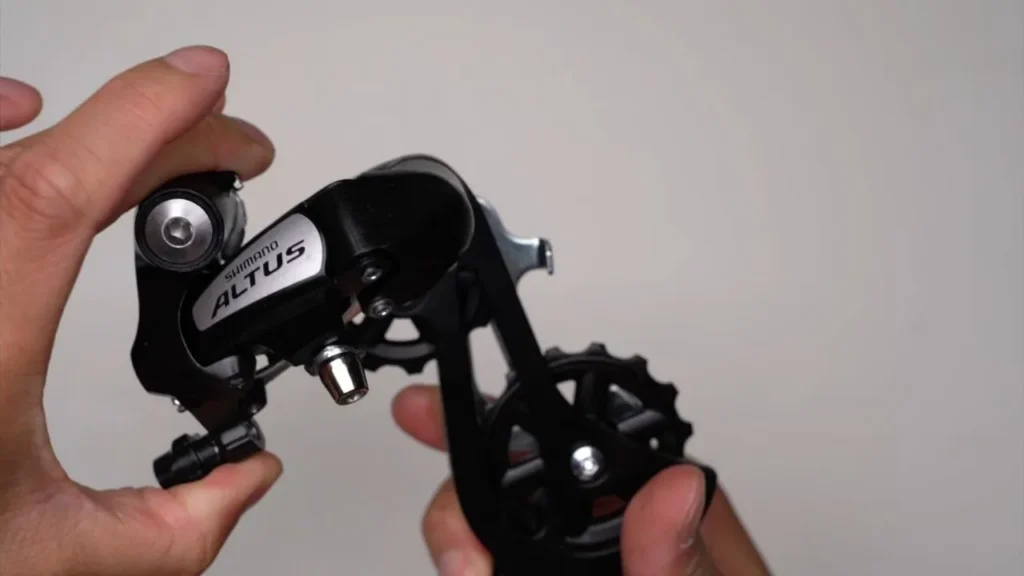
Altus delivers solid shifting for recreational mountain bike use. The basic Hyperglide technology facilitates steady gear changes under normal loads.
Durability:
Shimano Altus is built to be durable for daily use and stands up well to regular wear and tear. However, it does not offer high-performance construction or materials to match the ruggedness of a groupset like Deore.
Altus favors affordability over maximizing longevity under intense loads or abrasive conditions. It strikes a balance suitable for easy-going recreational rides.
Weight:
In order to keep costs down, Altus uses heavier materials such as steel alloys in the cranks and derailleurs rather than lightweight metals or composites.
This adds weight compared to higher-end groupsets, but weight reduction is not a priority for this level of recreational components.
Price:
One of the biggest advantages of Shimano Altus is its budget-friendly price. It provides a complete gearing solution at an accessible price point for new mountain bikers.
While the performance is not high-end, the value is unmatched for casual off-road riding applications.
Materials/Tech:
The Altus construction focuses on reliable function rather than advanced technologies. The components use proven materials aimed at cost efficiency rather than pushing performance limits.
While some tech does trickle down from higher tiers, Altus prioritizes affordability and simplicity over innovation.
Pros and cons of Shimano Altus
| Pros | Cons |
|---|---|
| Very affordable pricing for beginners | Heavier weight compared to higher tiers |
| Reliable shifting performance | Limited 9-speed gear range |
| Durable enough for daily recreational use | Lacks refined shifting of premium groupsets |
| Simple design easy to adjust and maintain | Not optimized for rugged mountain biking |
| Light action shifters comfortable for casual riding | Durability not on par with Deore |
Shimano Deore vs. Altus: Key Differences
Now that we’ve covered the critical basics of both groupsets, it’s time to dig into a blow-by-blow comparison of Deore vs Altus across the most vital performance factors.
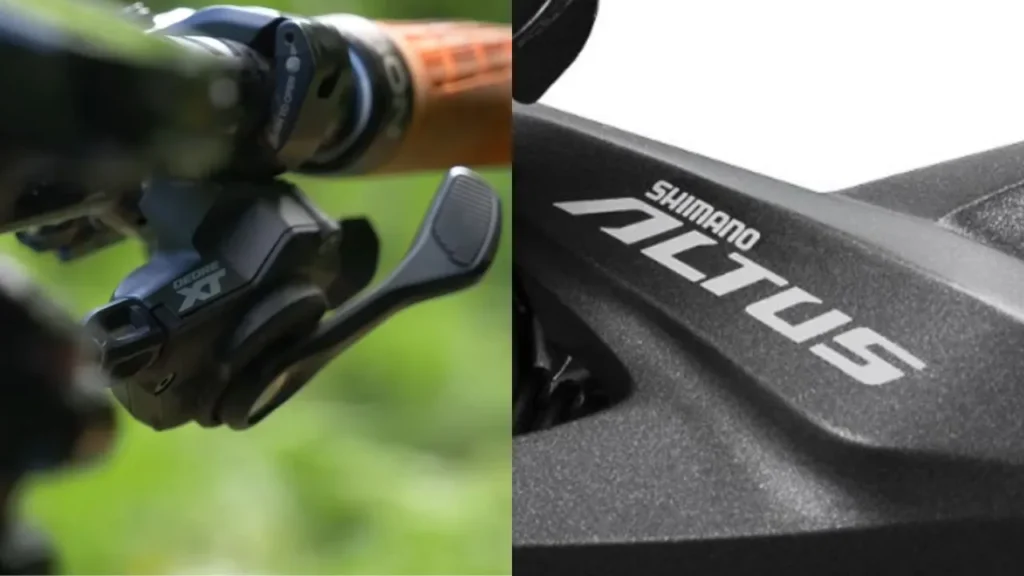
1. Shifting Quality and Performance:
Deore: The shifting performance of Shimano Deore is renowned for being buttery smooth, extremely precise, and consistent across all gears even under heavy loads. This is thanks to trickle-down technologies like Hyperglide+ tooth profiling, Shadow Plus clutched derailleurs, and dynamic chain engagement that together enable lightning-fast yet accurate gear transitions even when pedaling hard on challenging mountain trails.
Altus: While the shifting of Shimano Altus is smooth and reliable, meeting the needs of recreational riding, it lacks the crisp refinement and precision of Deore, especially when shifting under load. The basic Hyperglide technology provides adequate performance for casual use but is not as optimized for quick gear changes on variable terrain.
2. Gear Range:
Deore: Shimano Deore offers extensive gearing range options to tackle steep ascents or fast descents effectively. The 10/11/12-speed cassettes like 11-46T or 11-51T provide a wide gear breadth to adapt cadence precisely to the terrain. This suits the advanced control needed for aggressive enduro, downhill, and cross-country riding over rolling or technical trails.
Altus: In contrast, the Shimano Altus has a more narrow overall gear range with just 9-speed cassettes up to 36T. While the gearing is suitable for recreational cycling, it severely limits the ability to adapt to technical climbing or high speeds. The gear range is narrower to keep costs down rather than maximize performance.
3. Intended Use Cases:
Deore: Optimized for hardcore, aggressive mountain biking and disciplines like enduro, trail, gravity, and cross-country racing, Shimano Deore provides the advanced performance features and broad gear range needed to take on the most demanding black diamond runs and downhill tracks.
Altus: As an entry-level groupset, Shimano Altus suits beginner and casual recreational mountain biking on easier blue square trails, dirt paths, forest roads, and mild singletrack. It is not intended for aggressive downhill riding or bike park terrain.
4. Durability and Ruggedness:
Deore: To withstand repeated hard impacts and trail abrasions, Shimano Deore uses high-end metals, alloys, and composites to create a rugged yet lightweight groupset. The construction quality ensures season after season of trouble-free use under hardcore riding conditions and repeated abuse that would cause cheaper components to fail quickly.
Altus: While reasonably durable for recreational rides, Shimano Altus uses less expensive materials like steel alloys rather than performance alloys to save costs. This comes at the expense of maximum longevity under intense loads or rough technical terrain. Altus will wear faster than Deore when subjected to aggressive riding.
5. Weight:
Deore: By utilizing advanced lightweight alloys and composites, Shimano Deore minimizes weight to balance durability without compromising efficiency and handling. This caters to rider preferences for nimble but resilient cross-country or trail bikes.
Altus: To keep costs down, the Altus construction centers on affordable but heavier materials like steel alloys rather than composites or exotic metals. The added heft is inconsequential for casual riding but detrimental for aggressive handling requirements.
6. Price and Value:
Deore: Deore provides greater value by delivering advanced technology and performance at a reasonable mid-range price point.
Altus: The affordability of Altus is its biggest advantage, making it ideal for beginners on a tight budget.
7. Brake System Differences:
Deore: Deore offers the power and control of hydraulic disc brakes.
Altus: Altus uses mechanical disc brakes with adequate but more basic stopping power.
ALSO READ: What is the difference between hydraulic and mechanical disc brakes and how to choose one.
8. Materials and Construction:
Deore: Deore uses high-end lightweight metals, alloys, and composites to balance durability and low weight along with advanced tech.
Altus: The Altus construction focuses on cost-efficient but heavier materials like steel alloys rather than performance-driven composites or lightweight metals.
Choosing Between Deore and Altus Groupsets
With the key differences between Deore and Altus groupsets covered, it’s time to look at when each option is the better choice for your needs.
When Deore is the better choice:
Shimano Deore is the better option for riders who demand high-performance mountain biking and need a groupset to withstand aggressive trail, enduro, or downhill riding.
The smooth and precise shifting, wide gear range, and excellent durability make Deore ideal for technical terrain and disciplines like cross-country, trail/all-mountain, and enduro racing. Deore is also preferred for riders wanting pro-level features without paying premium prices.
When Altus is the better choice:
Shimano Altus is the better choice for recreational or novice mountain bikers looking for an affordable and reliable entry-level groupset.
The consistent shifting and durable construction provide a solid foundation for new riders or those just needing basic performance for mellow trails. Altus also suits budget-minded riders who don’t require robust performance or wide gearing suited for hardcore mountain biking.
How to select based on budget, riding terrain, and experience level:
💡Budget: Altus wins for tight budgets while Deore justifies its higher cost for serious riders wanting more performance.
💡Riding Terrain: Altus handles smooth, rolling terrain while Deore is optimized for steep, uneven, and technical trails.
💡Experience Level: Beginners benefit from Altus’ simplicity while Deore better aids skill progression for intermediate/advanced riders.
When selecting between Deore and Altus, analyze your budget constraints, the difficulty of trails you ride, and your current skill level. If new to mountain biking or on a strict budget, Altus makes sense to start. But push your riding into demanding terrain or racing, then Deore is worth the investment. Match the groupset to your unique needs and goals.
RELATED POST:
1. Microshift Mezzo vs Shimano Tourney Learn why Mezzo makes more sense!
2. Shimano Vs Microshift The better brand for your need decoded!
FAQ
Is Shimano Deore Better than Altus?
Yes, the Shimano Deore is considered better than the Shimano Altus overall for mountain biking. Deore offers superior shifting performance, wider gear range, increased durability, lighter weight, and more advanced features compared to Altus. While Altus provides good value for recreational riding, Deore is better equipped for technical terrain, aggressive riding styles, and withstanding rugged conditions.
Which chain for Shimano Altus?
For Shimano Altus groupsets, use a Hyperglide (HG) 6, 7, or 8-speed chain. The HG chain technology is optimized for smooth shifting performance with Altus. Good options are the Shimano CN-HG40, CN-HG50, CN-HG53, or CN-HG71 in the appropriate 6/7/8 speed to match your specific Altus drivetrain.
Conclusion
When choosing between Shimano Deore and Shimano Altus groupsets, there are clear tradeoffs between performance and price. Deore is the way to go for riders who demand smooth, crisp shifting and a wide gear range to take on technical mountain trails.
In contrast, Altus offers solid recreational performance for a fraction of the cost. For newer mountain bikers or those on tight budgets, Altus provides fundamental features without breaking the bank. Just don’t expect the same refinement or ruggedness as Deore.
Ultimately, choose Shimano Deore if your budget allows you to ride challenging mountain terrain.
Go for Shimano Altus if you want basic performance for mellow trails without paying for unnecessary advancements. Consider your specific riding style, local trails, and budget to decide which groupset is the right fit.


0 Comments